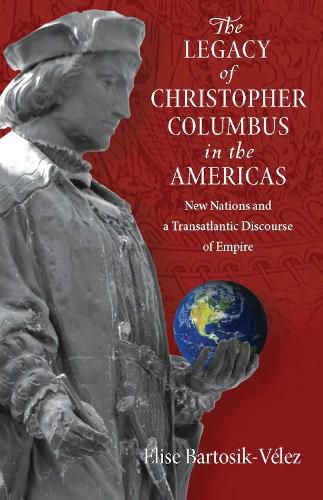Readings Newsletter
Become a Readings Member to make your shopping experience even easier.
Sign in or sign up for free!
You’re not far away from qualifying for FREE standard shipping within Australia
You’ve qualified for FREE standard shipping within Australia
The cart is loading…






Why is the capital of the United States named in part after Christopher Columbus, a Genoese explorer commissioned by Spain who never set foot on what would become the nation’s mainland? Why did Spanish American nationalists in 1819 name a new independent republic
Colombia,
after Columbus, the first representative of the empire from which they had recently broken free? These are only two of the introductory questions explored in The Legacy of Christopher Columbus in the Americas, a fundamental recasting of Columbus as an eminently powerful tool in imperial constructs.
Bartosik-Velez seeks to explain the meaning of Christopher Columbus throughout the so-called New World, first in the British American colonies and the United States, as well as in Spanish America, during the eighteenth and nineteenth centuries. She argues that during the pre- and post-revolutionary periods, New World societies commonly imagined themselves as legitimate and powerful independent political entities by comparing themselves to the classical empires of Greece and Rome. Columbus, who had been construed as a figure of empire for centuries, fit perfectly into that framework. By adopting him as a national symbol, New World nationalists appeal to Old World notions of empire.
$9.00 standard shipping within Australia
FREE standard shipping within Australia for orders over $100.00
Express & International shipping calculated at checkout
Why is the capital of the United States named in part after Christopher Columbus, a Genoese explorer commissioned by Spain who never set foot on what would become the nation’s mainland? Why did Spanish American nationalists in 1819 name a new independent republic
Colombia,
after Columbus, the first representative of the empire from which they had recently broken free? These are only two of the introductory questions explored in The Legacy of Christopher Columbus in the Americas, a fundamental recasting of Columbus as an eminently powerful tool in imperial constructs.
Bartosik-Velez seeks to explain the meaning of Christopher Columbus throughout the so-called New World, first in the British American colonies and the United States, as well as in Spanish America, during the eighteenth and nineteenth centuries. She argues that during the pre- and post-revolutionary periods, New World societies commonly imagined themselves as legitimate and powerful independent political entities by comparing themselves to the classical empires of Greece and Rome. Columbus, who had been construed as a figure of empire for centuries, fit perfectly into that framework. By adopting him as a national symbol, New World nationalists appeal to Old World notions of empire.